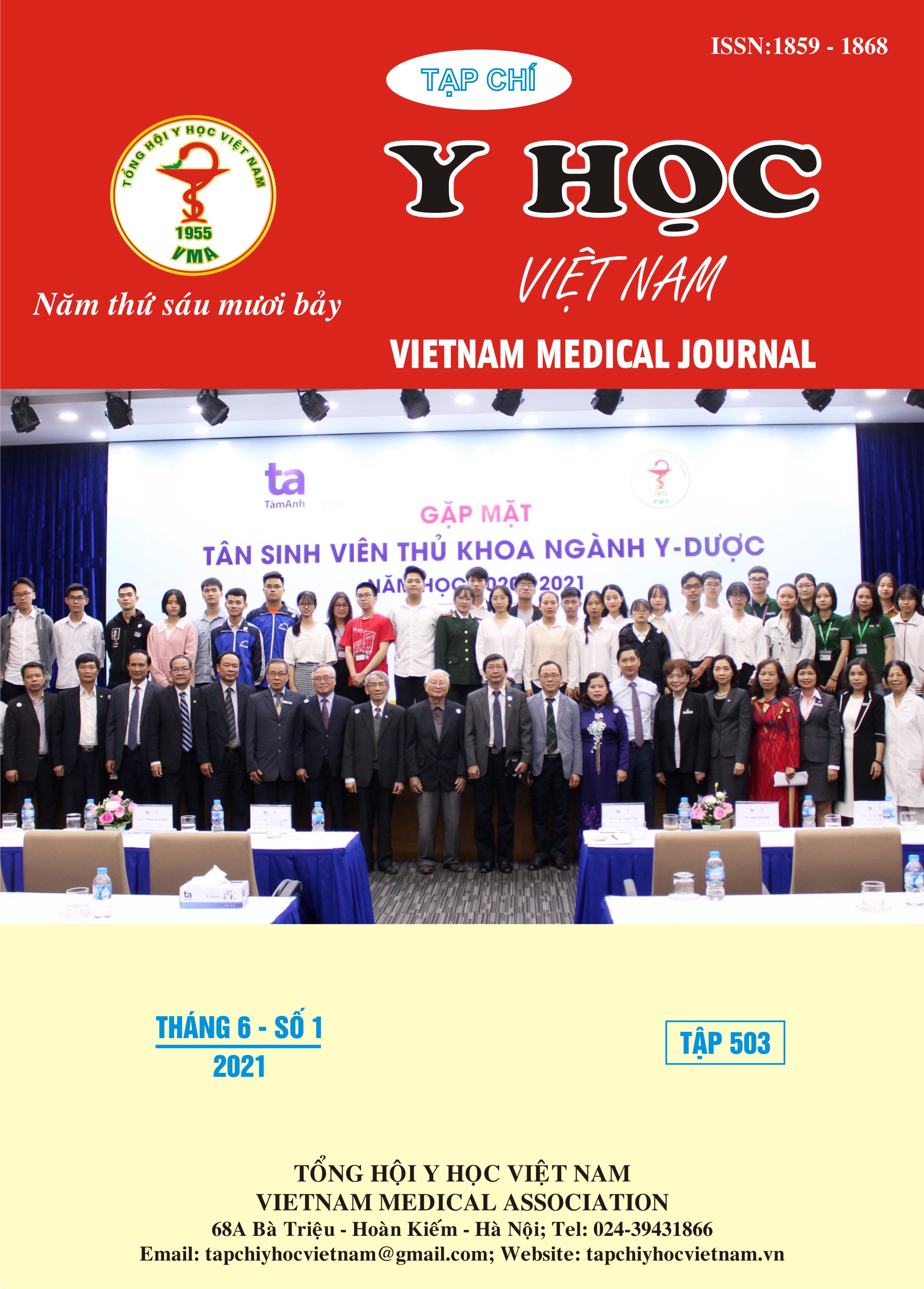STUDENT’S ATTITUDE TOWARD MEALS AT SOME ELEMENTARY SCHOOLS IN HANOI
Main Article Content
Abstract
Objectives: Primary school meal services play an important role in the learning process, developing physical strength, stature and improving the health of students. The study aimed to assess students' attitudes about school meals at primary schools in Hanoi. Method: cross-sectional study was conducted on 996 students from October 2019 to May 2020, at 09 primary schools of Hanoi City. Results: The proportion of students who liked/enjoyed school meals was 30% and 38% respectively, there was a difference between students in 3 areas (p <0.05). “Diverse food, many delicious dishes” and “appetizing” were the main reasons children like boarding meals. For students who do not like to eat at school, the reason of "not good taste" accounted for a high proportion in all 3 groups of students, and the highest among the 2 groups of students in the Center and the suburbs. For Rural students, "the food is not good" and the "lack of friendliness of the kitchen ladies" were the reasons that deserve attention. Conclusion: To promote the value of boarding meals in elementary schools and stimulate interest among students, not only diversifying menus, but also ensuring hygiene and nutrition, and training of people. School kitchen staff, building a friendly environment for children, creating a pedagogical and highly educational eating environment should also be focused.
Article Details
Keywords
primary school students, school meals, Hanoi
References
2. Thủ tướng Chính phủ (2019). Đề án “Bảo đảm dinh dưỡng hợp lý và tăng cường hoạt động thể lực cho trẻ em, học sinh, sinh viên để nâng cao sức khỏe, dự phòng bệnh ung thư, tim mạch, đái tháo đường, bệnh phổi tắc nghẽn mãn tính và hen phế quản giai đoạn 2018 - 2025” ban hành kèm theo Quyết định số 41/QĐ-TTg ngày 08/01/2019. .
3. Thủ tướng Chính phủ (2011). Đề án tổng thể phát triển thể lực, tầm vóc người Việt Nam giai đoạn 2011 – 2030 ban hành kèm theo ban hành kèm theo Quyết định số 641/QĐ-TTg ngày 28/4/2011.
4. Hu M., Yanqiu D., Sha L. và cộng sự. (2013). Food Services and Student Life: A Business Anthropological Case Study. Transforming Ethnography: User Experience Methods and Practices, 33–60.
5. Tian R., Trotter D.L., Zhang L. và cộng sự. (2014). The Importance of Foodservice in Higher Education: A Business Anthropological Case Study in China. The Anthropologist, 18, 65–79.
6. Korean Ministry of Education (2016). The 2015 status of school foodservice. , accessed: 20/03/2021.
7. Lee K.-E. (2019). Students’ dietary habits, food service satisfaction, and attitude toward school meals enhance meal consumption in school food service. Nutr Res Pract, 13(6), 555–563.
8. Le D.S.N.T. (2012). School meal program in Ho Chi Minh city, Vietnam: reality and future plan. Asia Pac J Clin Nutr, 21(1), 139–143.


